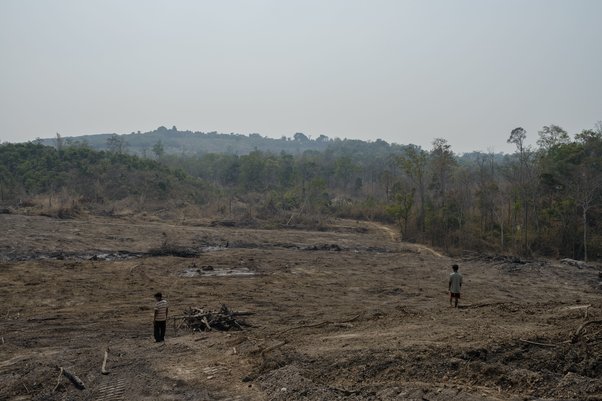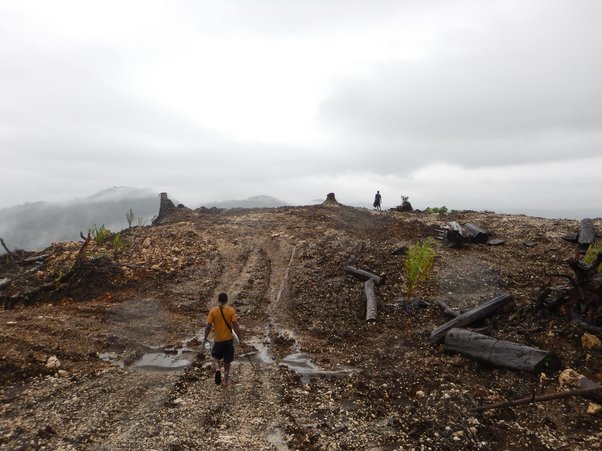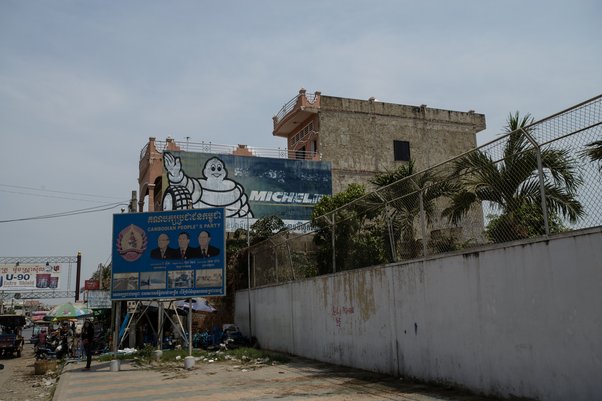Vietnamese rubber giant Hoang Anh Gia Lai (HAGL) has failed to keep to commitments to address environmental and human rights abuses in its plantations in Cambodia and Laos, Global Witness said today.
The campaign group says the company now poses a financial and reputational risk to its investors, including Deutsche Bank and the International Finance Corporation, and recommends they divest.
In May 2013, Global Witness’s Rubber Barons investigation revealed extensive social and environmental damage in and around HAGL’s plantations in Cambodia and Laos, including grabbing land from local communities and the clearing of large areas of forest. Despite the company committing to addressing these urgent problems, there is little evidence to show that anything has yet changed on the ground.
“HAGL has been very good at making commitments but very bad at keeping them. It’s been busy telling us and everyone else it’s serious about changing its ways, but the evidence indicates that logging is still carrying on and the people whose farms were bulldozed are still struggling to feed themselves,” said Megan MacInnes from Global Witness.
Global Witness gave HAGL and its investors six months to address the issues outlined in the Rubber Barons report and film. Following an initial meeting with Global Witness in June, the company issued a four-month freeze on clearing and planting within its concessions, and agreed to visit all affected villages to discuss and address problems local people were facing.
However, Global Witness interviewed people in seven villages around HAGL’s concessions in Cambodia in August. In three of these, people claimed that the company had not yet visited their village, whilst in the other four, it was reported that HAGL officials had refused to discuss disputes over land or forests. In six of these villages, people spoke of continued logging in and around HAGL’s rubber plantations, despite the moratorium. Independent satellite analysis of forest cover within HAGL’s concessions taken between July and August also indicated continued forest loss.
During a second meeting with Global Witness in September, HAGL agreed to an independent audit of its rubber plantations to address the concerns. However, the company has not delivered on this commitment, deciding to focus instead on “social programmes”, which appear to be little more than a PR exercise.
“November marks the end of the six-month deadline for the company to clean up this mess. HAGL’s inaction so far leaves us no choice but to conclude that it has little intention of taking these problems or its responsibilities seriously”, said Megan MacInnes. “Villagers suffering everyday as a result of HAGL’s concessions are all too aware of the environmental and social risks the company is taking - we think its investors should be concerned too, and as a result should divest”.
When questioned by Global Witness on 13th November 2013, HAGL refuted the lack of progress. The company stated it had provided jobs and implemented economic and social development projects (including building roads, houses and hospitals), but that the monsoon and Cambodia’s national election had prevented the company from accessing affected communities. HAGL claimed that their moratorium was being followed, describing the satellite evidence provided by Global Witness as “untrustworthy”. In addition, HAGL says it is “looking for an independent consulting firm to help HAGL make the survey and give advice to HAGL to improve the issues related to the communities” but that such consultants must be accompanied by company staff in order to “assure the consultant’s independency of their findings”.
Negotiations between Global Witness and a second Vietnamese company exposed in Rubber Barons – the Vietnam Rubber Group –– are ongoing.


